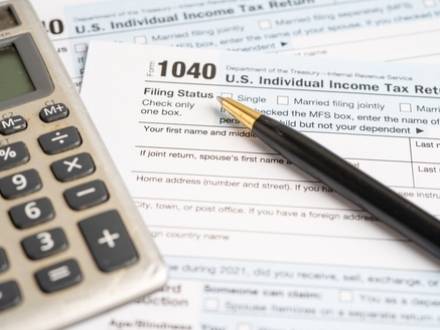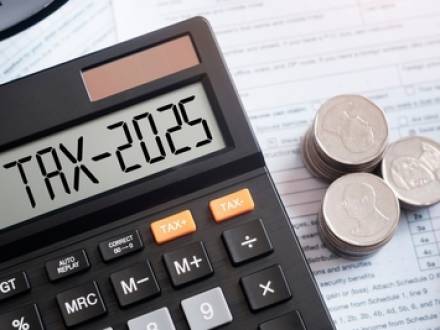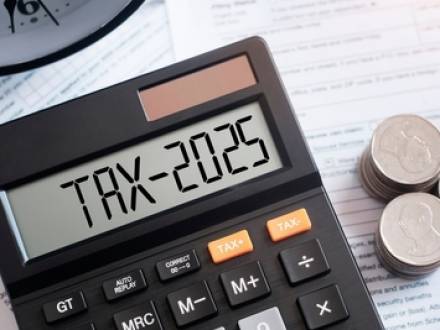Recent Blog Posts
What Is the Difference Between a Small Case Request and a Formal Protest in an IRS Appeal?
 There are many reasons why taxpayers may wish to appeal the decisions made by the IRS. After conducting a tax audit, the IRS may determine that taxes and penalties are owed, but the taxpayer may believe that these assessments are incorrect. As well, the IRS may reject a claim for a refund or tax credit, but the taxpayer may believe that they qualify for these tax benefits. Appeals may also address a variety of other tax-related issues, and specific procedures must be followed in these cases.
There are many reasons why taxpayers may wish to appeal the decisions made by the IRS. After conducting a tax audit, the IRS may determine that taxes and penalties are owed, but the taxpayer may believe that these assessments are incorrect. As well, the IRS may reject a claim for a refund or tax credit, but the taxpayer may believe that they qualify for these tax benefits. Appeals may also address a variety of other tax-related issues, and specific procedures must be followed in these cases.
Because of the complex laws surrounding tax appeals, it is crucial to work with an experienced attorney when addressing these issues. A lawyer with a strong understanding of tax law can help taxpayers understand their options and provide effective representation when interacting with the IRS or pursuing appeals in U.S. Tax Court, U.S. district courts, or the U.S. Court of Federal Claims.
When Can a Small Business Be Audited by the IRS or the State of California?
 Operating a small business in California can be rewarding, but business owners will need to make sure they comply with a complex web of federal and state tax regulations. One of the most stressful challenges a business owner may face is a tax audit. These audits may be conducted by the Internal Revenue Service (IRS) or California tax agencies, and they may be part of routine reviews or potential concerns about violations of tax laws. Legal help from an experienced attorney can be invaluable in these situations, and it can help ensure that small businesses will be able to navigate audits effectively while reducing the risk of penalties.
Operating a small business in California can be rewarding, but business owners will need to make sure they comply with a complex web of federal and state tax regulations. One of the most stressful challenges a business owner may face is a tax audit. These audits may be conducted by the Internal Revenue Service (IRS) or California tax agencies, and they may be part of routine reviews or potential concerns about violations of tax laws. Legal help from an experienced attorney can be invaluable in these situations, and it can help ensure that small businesses will be able to navigate audits effectively while reducing the risk of penalties.
IRS Audits: What Triggers Federal Tax Scrutiny?
The IRS may conduct audits to verify the accuracy of a business's tax returns and ensure that it is maintaining compliance with federal tax laws. Small businesses can be selected for an audit for several reasons, including:
Will the Tax Cuts and Jobs Act Be Extended?
 In 2017, during Donald Trump’s first presidential term, Congress passed the Tax Cuts and Jobs Act (TCJA), which put in place a number of significant changes that affected both individual taxpayers and businesses. However many of the provisions in this law were temporary, and they are set to expire at the end of 2025. Congress is now considering whether a new law may be passed to extend some of the terms or make other changes to tax laws. In order to do so, Congress will likely need to make large cuts to the government’s budget, so the ultimate decisions that will be made are uncertain.
In 2017, during Donald Trump’s first presidential term, Congress passed the Tax Cuts and Jobs Act (TCJA), which put in place a number of significant changes that affected both individual taxpayers and businesses. However many of the provisions in this law were temporary, and they are set to expire at the end of 2025. Congress is now considering whether a new law may be passed to extend some of the terms or make other changes to tax laws. In order to do so, Congress will likely need to make large cuts to the government’s budget, so the ultimate decisions that will be made are uncertain.
Since the path that Congress will take is currently unknown, many taxpayers are facing uncertainty about whether their taxes may increase, whether certain tax credits or deductions will be available, and what they can do to minimize their tax burdens. Because of this uncertainty, it is more important than ever to work with a skilled attorney to address tax-related issues and determine the best course of action.
How Can Taxpayers Request Payment Plans and Offers in Compromise?
 When people fall behind on their tax obligations, the consequences can be serious. The IRS may impose penalties, add interest to unpaid amounts, and even initiate collection actions such as wage garnishments, tax liens, or bank levies. For many taxpayers, paying off a large tax debt in one lump sum is simply not possible. Fortunately, the IRS offers several options to help taxpayers manage their debts, including payment plans and offers in compromise. A California tax attorney who has extensive experience in tax law can help taxpayers explore these options and present a strong case for reducing or managing their tax burdens.
When people fall behind on their tax obligations, the consequences can be serious. The IRS may impose penalties, add interest to unpaid amounts, and even initiate collection actions such as wage garnishments, tax liens, or bank levies. For many taxpayers, paying off a large tax debt in one lump sum is simply not possible. Fortunately, the IRS offers several options to help taxpayers manage their debts, including payment plans and offers in compromise. A California tax attorney who has extensive experience in tax law can help taxpayers explore these options and present a strong case for reducing or managing their tax burdens.
Applying for an IRS Payment Plan
A payment plan, which is also known as an installment agreement, allows a taxpayer to pay off debt over time through monthly payments. There are several types of installment agreements based on the amount owed and the taxpayer’s financial situation:
New Law May Help Taxpayers Address Refunds in Tax Court
 Resolving tax law issues with the IRS can be a complicated process. In some cases, these matters may be handled in the U.S. Tax Court, while in others, taxpayers must pursue claims in U.S. district courts. Determining the available options is not always easy, and some taxpayers may simply give up rather than try to contest tax issues or recover refunds that they are owed. However, new legislation may provide more options for taxpayers, ensuring that they will be able to address certain tax issues more easily and efficiently.
Resolving tax law issues with the IRS can be a complicated process. In some cases, these matters may be handled in the U.S. Tax Court, while in others, taxpayers must pursue claims in U.S. district courts. Determining the available options is not always easy, and some taxpayers may simply give up rather than try to contest tax issues or recover refunds that they are owed. However, new legislation may provide more options for taxpayers, ensuring that they will be able to address certain tax issues more easily and efficiently.
Determining how to resolve tax-related concerns can be a complex process, and the assistance of a skilled San Jose, CA tax attorney can be invaluable in these situations. Whether an issue can be resolved in Tax Court, by negotiating agreements with the IRS, or through other means, a lawyer who has a strong understanding of tax law can provide the guidance needed to protect a taxpayer’s interests.
What Relief Is Available to Taxpayers Affected by California Wildfires?
 In recent years, California has experienced several disasters in which wildfires have raged out of control, destroying many homes and businesses. One of the most devastating wildfires took place in Los Angeles County in January 2025, affecting people in cities like Pacific Palisades, Altadena, and Pasadena. As people, families, and businesses take steps to put their lives back together after suffering major losses, they can receive relief from the IRS in regard to certain tax issues.
In recent years, California has experienced several disasters in which wildfires have raged out of control, destroying many homes and businesses. One of the most devastating wildfires took place in Los Angeles County in January 2025, affecting people in cities like Pacific Palisades, Altadena, and Pasadena. As people, families, and businesses take steps to put their lives back together after suffering major losses, they can receive relief from the IRS in regard to certain tax issues.
Tax laws can be complicated, and taxpayers will need to understand what steps they can take to protect their financial interests as they deal with the aftermath of disasters. An experienced California tax attorney can provide guidance on how to address tax-related concerns in these situations, ensuring that business owners and families can receive the relief they need.
Are There Tax Credits for Residential Energy Efficiency?
 Due to ongoing concerns about climate change, the government is looking to promote energy efficiency and encourage people to reduce the amounts of energy they use. While making improvements to a home can help improve efficiency and reduce costs for electricity or natural gas, these improvements can be cost-prohibitive. Fortunately, there are some tax incentives for homeowners who make these types of modifications.
Due to ongoing concerns about climate change, the government is looking to promote energy efficiency and encourage people to reduce the amounts of energy they use. While making improvements to a home can help improve efficiency and reduce costs for electricity or natural gas, these improvements can be cost-prohibitive. Fortunately, there are some tax incentives for homeowners who make these types of modifications.
Understanding what tax credits may be available, when they can be claimed, and how to maximize tax savings can be difficult due to complex rules and regulations. A San Jose, CA tax attorney with a strong understanding of tax laws can provide guidance on these issues.
Energy Efficient Home Improvement Credit
Homeowners may receive tax credits for making improvements to their homes that will increase energy efficiency. The Inflation Reduction Act of 2022 made some changes to this credit, increasing the amounts that taxpayers can claim for improvements made after January 1, 2023. In general, taxpayers can claim credits for 30 percent of the costs of qualifying home improvements, although there are caps on the amounts that may be claimed.
When Do Limited Partners Qualify for Exemptions From Self-Employment Taxes?
 There are a variety of tax-related concerns that can affect business owners and partners. Understanding what taxes will apply to a business’s earnings, the income paid to partners, and the distributions of profits and losses can be a complex matter. In some cases, there may be confusion about whether limited partners in a business partnership will be required to pay self-employment taxes. By addressing issues related to small business taxes correctly, business owners and partners can avoid potential penalties.
There are a variety of tax-related concerns that can affect business owners and partners. Understanding what taxes will apply to a business’s earnings, the income paid to partners, and the distributions of profits and losses can be a complex matter. In some cases, there may be confusion about whether limited partners in a business partnership will be required to pay self-employment taxes. By addressing issues related to small business taxes correctly, business owners and partners can avoid potential penalties.
The U.S. Tax Court recently issued a ruling addressing whether a limited partner in a partnership can qualify for an exception from self-employment taxes under the Self-Employment Contributions Act (SECA). This decision is particularly important for business owners, partners, and investors, as it clarifies how self-employment taxes are assessed and when a limited partner may be exempt. An experienced San Jose, CA tax attorney can help business owners and investors determine their tax obligations and ensure compliance with federal tax laws.
IRS Offers Taxpayers More Options for Alternative Dispute Resolution
 When taxpayers encounter disputes with the IRS regarding tax debts, penalties, or other concerns, they may be unsure about their options. Fortunately, the IRS offers solutions for addressing these issues outside the standard legal or administrative processes, which can help taxpayers resolve concerns more quickly and efficiently. Recently, the IRS has begun to offer some expanded options for alternative dispute resolution (ADR) that may benefit businesses involved in tax appeals.
When taxpayers encounter disputes with the IRS regarding tax debts, penalties, or other concerns, they may be unsure about their options. Fortunately, the IRS offers solutions for addressing these issues outside the standard legal or administrative processes, which can help taxpayers resolve concerns more quickly and efficiently. Recently, the IRS has begun to offer some expanded options for alternative dispute resolution (ADR) that may benefit businesses involved in tax appeals.
Understanding the best approach to take to resolve tax disputes can be difficult, which is why legal representation is crucial in these situations. A California tax attorney with experience and understanding of taxation law representing clients in matters related to the IRS can provide guidance in these situations while working to minimize the taxes, penalties, and interest that taxpayers may be required to pay.
How Is Business Personal Property Taxed in California?
 There are a variety of taxes that apply to businesses. These include federal and state income taxes that apply to a business’s profits and losses. Businesses in California are also required to pay property taxes, which are usually assessed based on the value of real estate property where a business is located. However, business owners should know that property taxes also apply to other property owned by a business. This property is known as business personal property, and understanding what types of property must be reported to the State of California can help ensure that business owners are not surprised by a tax bill.
There are a variety of taxes that apply to businesses. These include federal and state income taxes that apply to a business’s profits and losses. Businesses in California are also required to pay property taxes, which are usually assessed based on the value of real estate property where a business is located. However, business owners should know that property taxes also apply to other property owned by a business. This property is known as business personal property, and understanding what types of property must be reported to the State of California can help ensure that business owners are not surprised by a tax bill.
Resolving concerns related to property taxes is not always easy, especially when there are questions about the valuation of property and the taxes that may apply. A California tax attorney with experience in property tax law and the tax issues affecting small businesses can help identify any concerns, ensure that property is assessed correctly, and work to resolve any issues while minimizing the property taxes and/or penalties that a business may be required to pay.









